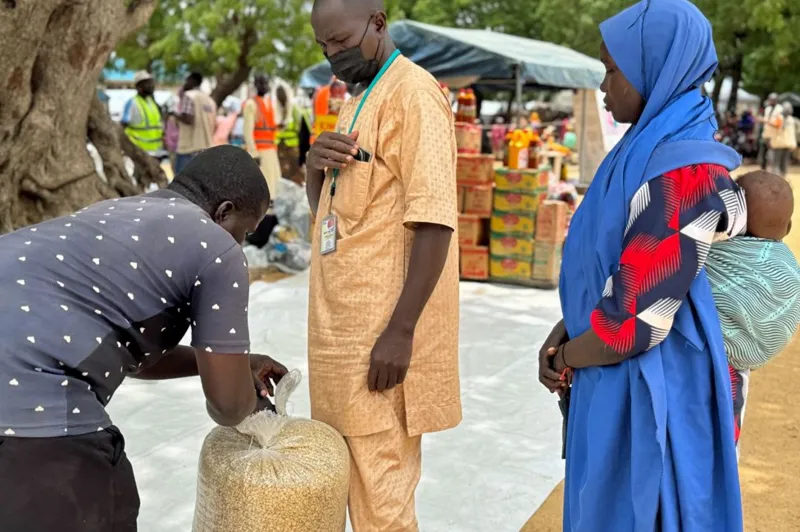Drastic cuts to humanitarian aid in north-eastern Nigeria could prove a boon to one of the world’s most deadly militant groups, Boko Haram, aid agencies have warned.
A reduction of funding in recent months has forced the United Nation’s World Food Programme (WFP) to ration its support, and now it has completely run out.
“It will be much easier for militants to lure youths to join them and spiral insecurity across the whole region,” Trust Mlambo, head of operations in the area for WFP, told the BBC.
Notorious around the world for kidnapping more than 200 schoolgirls from the town of Chibok more than a decade ago, Boko Haram has taken thousands of people captive during its raids and forced more than a million from their village homes.
Boko Haram was initially a religious Muslim group founded in the early 2000s that was opposed to Western education. It went on to launch military operations in 2009 with the political aim of creating an Islamic state, causing mayhem across the region – including in neighbouring countries such as Cameroon, Chad and Niger.
It has been classified as one of the world’s deadliest jihadist groups, and a splinter group pledged allegiance to the Islamic State group in 2015.
Aisha Abubakar has lost more than half her family because of attacks on her village in Borno state and illness.
“My husband and six children were killed in the bush,” the 40-year-old told the BBC.





